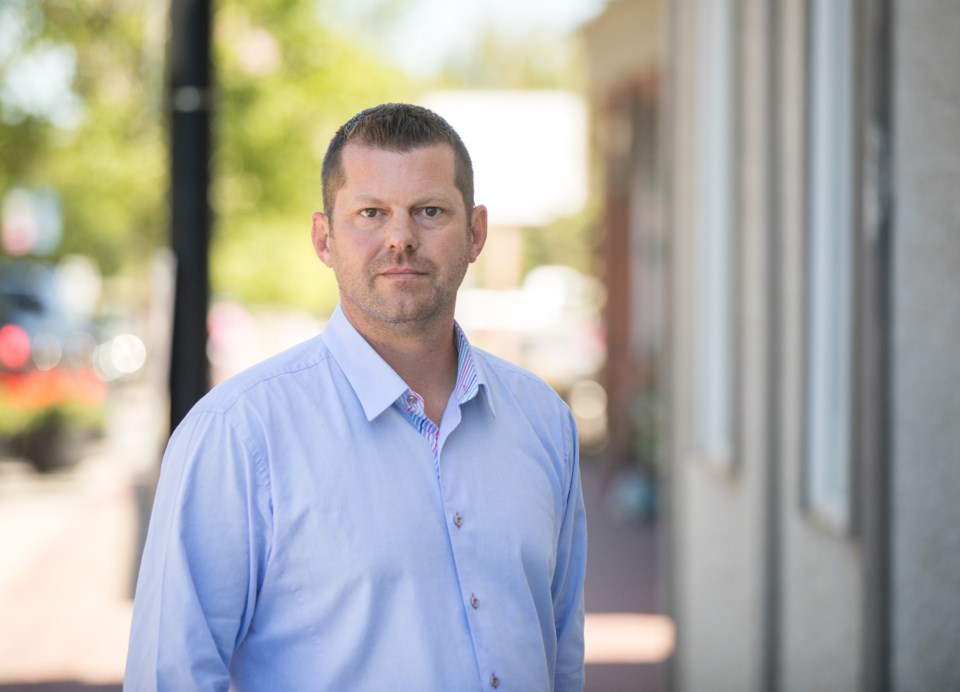The Alberta government is kicking off a Rural Crime Tour with Highwood MLA RJ Sigurdson at the helm.
As co-chair of the rural crime committee, Sigurdson is working with Doug Schweitzer, Minister of Justice and Solicitor General, to address the issue of rural crime within the province.
Sigurdson will be co-ordinating the southern Alberta stage of the tour, while Grande Prairie MLA Tracy Allard—the other co-chair of the committee—will be co-ordinating the northern Alberta side.
Starting in August, the tour will run until the government’s open session begins again in October.
Official dates and locations for the tour are expected to be finalized in the upcoming weeks, said Sigurdson.
“Right now, I’m meeting with the Foothills Crime Watch Association and talking with them, and trying to get the word out that this is a tour that’s going to be happening in southern Alberta,” he said.
The tour will involve town hall sessions, where the community can express their concerns regarding rural crime.
“That’s the only way we can address these issues, is if we listen and we’re actually willing to have those conversations with people so we can tell them ‘this is what we can do for you, this is what we’re planning, and how can we make this better,’” said Schweitzer. “That’s the only way that we can do our jobs effectively.”
Schweitzer commended local Crime Watch and community stakeholder initiatives for their successes, and said their goal is for better co-ordination between police, units and communities.
Schweitzer said they were “making sure to keep our finger on the pulse” of what is happening across Alberta, in order to complement the services in the communities.
The Okotoks RCMP detachment—as said by Sgt. Sukh Randhawa in the RCMP’s quarterly report presented to town council in May—and municipal enforcement have expressed concerns regarding understaffing and adequate policing in the growing community.
Addressing the understaffing issues for rural RCMP detachments, Schweitzer said the provincial government work with the RCMP regularly regarding adequate policing.
“We fund it, we’re paying for this service here in Alberta, and sometimes it’s fair to say that some of those communities have been underserved, and we have to have those real conversations with the RCMP,” he said. “Sometimes I think the RCMP also wear blame where it is not necessarily right as well, so we want to make sure that we work with them as a key stakeholder to make sure we have proper policing across Alberta.”
Schweitzer said the regional pressures of being close to cities such as Calgary can often push crime out to the surrounding communities.
“We have to break down those barriers that’s happening between the different police units and making sure there is a better collaboration and making sure that we deal with this in a strategic manner for regional police,” he said.
Schweitzer said they want to be talking with municipalities, in order to “empower them so that they have the right services for their community.”
Describing rural crime in the province as having reached a crisis point in recent years, Schweitzer said that while the bleeding has been stopped, the province is still in emergency care.
“We want to make sure that we listen to Albertans and start articulating to them how we’re going to roll out our commitments from the campaign,” he said.
Some of those commitments include dealing with repeat offenders, co-ordination between police and prosecutors, and making sure prosecutors have the necessary resources for their jobs, said Schweitzer.
After CBC reported on July 22 that hundreds of people accused of committing crimes in Calgary—such as theft, assault, shoplifting, and mischief—have walked free of their charges due to a lack of prosecutors, the issue of prosecution has become of particular concern.
Premier Jason Kenney responded by calling it “totally unacceptable,” and reaffirmed the UCP campaign commitment to hire 50 new Crown prosecutors.
Schweitzer said his department would be discussing the recruitment process of the plan and working to fulfill that key commitment to Albertans in real-time.
He said addressing the frustrations that communities can have with the justice system over the lack of follow-through with rural crime was important, such as introducing a joint unit of police and prosecutors to target high-volume repeat offenders.
“That is a big part to make sure that people have confidence in the justice system, so when they pick up the phone and do the right thing for themselves and their community, that we follow through,” he said. “Because otherwise, you lose public trust in the justice system, and that’s just not good enough.
“All Albertans should feel safe in their communities.”
Another goal is to address the root causes of crime, such as drug addiction and poverty.
The government has committed $20-million to drug treatment courts to deal head-on with addictions and help addicts with rehabilitation, said Schweitzer.
“It’s good policy; it’s good for the community, it reduces crime, but also it helps that individual live a meaningful life and reconnect with their family,” he said.
As for the role of poverty and hardship in crime rates, Sigurdson said improving the economy would play a principal role in fixing the root causes.
“We’ve got to get that economy back, we have to get the investment into Alberta, we have to have that availability of jobs,” he said. “If there’s no jobs, we can’t pull people out of poverty.”
Schweitzer said it was important to empower the courts to deal with different crimes in specialized ways, such as domestic violence and drug treatment courts.
“I’m open to making sure we listen to the communities as different initiatives are required,” he said. “We’re also working with many of our First Nations communities on specialized courts as well, to make sure we meet their demands and the needs of their communities to help rehabilitate people.
“The last thing you want to do is have somebody that continually rounds through the system; it’s not good for them individually, and also it’s not good for society.”




